Survey: Overall Satisfaction with Private Health Plans High, But Out-of-Pocket Costs Rub Some High Deductible Plan Enrollees the Wrong Way
Washington, DC (March 7, 2024) – The vast majority of private health plan enrollees are happy with their plans and the care they receive, but out-of-pocket costs for care and prescription drugs are vexing to many with high deductible health plans (HDHPs).
The 19th annual Consumer Engagement in Health Care Survey – conducted during the 2023 open enrollment season in partnership with the Employee Benefit Research Institute (EBRI) – found that 89% of traditional health plan enrollees were somewhat to extremely satisfied with their plans and 93% were satisfied with the quality of health care they received. While 82% of HDHP enrollees reported overall plan satisfaction and 91% satisfaction with quality of care, 24% were dissatisfied with their costs for prescriptions and 42% with their costs for health care services.
“Most respondents cited the network of health care providers, low out-of-pocket costs, low premiums, prescription drug coverage and ease of understanding as the most important elements of a health care plan,” says Greenwald’s Director, Healthcare, Sara Rubinstein. “But HDHP enrollees reported that low premiums were more important to them than low out-of-pocket costs when selecting a plan.”
The new Consumer Engagement in Health Care Survey of 2,020 privately insured adults was conducted between October 16 and December 11, 2023. Its key findings include:
- Just over 90% of respondents were either extremely or very satisfied (63%) or somewhat satisfied (28%) with the ease of selecting a plan during open enrollment. A similar number were either extremely or very satisfied (59%) or somewhat satisfied (31%) with the information available to help understand health insurance plan choices.
- About 90% were satisfied with the amount of time they had to choose a health plan and with the materials provided by their employer.
- Enrollment in health savings account (HSA)-eligible health plans and health reimbursement arrangements appears to have leveled off, registering between 18% and 19% between 2020 and 2023. Enrollment in HDHPs that were not eligible to be paired with an HSA fell from 12% to 9% between 2022 and 2023, down from 15% in 2020.
- Among respondents who enrolled through an employer, 17% were dissatisfied with the number of health plans they could choose from and 18% were dissatisfied with the availability of affordable health plans.
- Most enrollees spent an hour or less choosing a health plan – 66% for traditional plan enrollees, 68% for HDHP enrollees.
- HDHP enrollees are slightly more likely than traditional plan enrollees to have a choice of three health care plans, 31% to 28%.
- The majority of respondents – 72% – reported that their health plan has not changed in the last two years. 20% of traditional plan enrollees and 11% of HDHP plan enrollees said their plan is better than before. 8% of traditional plan enrollees and 16% of HDHP plan enrollees said their plan is worse than before.
- Sixty percent of respondents who’ve opened HSAs said they did it to take advantage of employer contributions. 58% said they wanted an account they can use to save and invest for future health care expenses and 52% wanted the tax savings associated with HSAs. Nearly half – 47% – said they would be more likely to accumulate and invest funds in an HSA account if they received an annual review of their HSA balance.
The 2023 Consumer Engagement in Health Care Survey short report of results is available online. The survey was sponsored by the Blue Cross and Blue Shield Association, HealthEquity, Inc., Millennium Trust Company, Segal, TIAA and Voya Financial.
About the Survey
The Consumer Engagement in Health Care Survey (CEHCS) is a survey of privately insured adults conducted by Greenwald Research and the Employee Benefit Research Institute (EBRI). The survey has been conducted annually since 2005. The CEHCS provides reliable national data on the growth of consumer driven health plans and high deductible health plans and their impact on the behavior and attitudes of health care consumers.
The 2023 survey of 2,020 individuals was conducted using Dynata’s online research panel between October 16 and December 11, 2023. All respondents were between the ages of 21 and 64.
The national sample is weighted by gender, age, income, ethnicity, education, and region to reflect the actual proportions in the population. The consumer directed health plan (CDHP) and high deductible health plan (HDHP) samples are weighted by gender, age, income, and ethnicity.
About Greenwald Research
Greenwald Research is a leading independent custom research firm and consulting partner to the health and wealth industries that applies creative quantitative and qualitative methods to produce knowledge that helps companies stay competitive and navigate industry change. By leveraging deep subject matter expertise and a trusted consultative approach, Greenwald offers comprehensive services for weaving rich research stories that answer strategic business questions. For 33 years, Greenwald has partnered with the Employee Benefits Research Institute to conduct the annual Retirement Confidence Survey.
About the Employee Benefit Research Institute (EBRI)
The Employee Benefit Research Institute is a non-profit, independent and unbiased resource organization that provides the most authoritative and objective information about critical issues relating to employee benefit programs in the United States.
# # #
Contact:
Herb Perone
media@greenwaldresearch.com
301-512-7636








